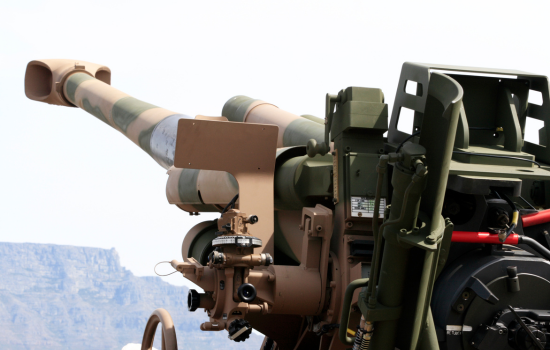In the beleaguered Middle East ISIL (ISIS, IS, whatever you prefer) and Russia are winning
On the backdrop of the recent Russian military deployment in Syria please see two apparently different viewpoints which however reveal the sad reality of the US and Russian involvement in the beleaguered Middle East.
My colleague Bruce Hoffman’s article “ISIL Is Winning” argues that fourteen years after terror struck the U.S., its strategy to defeat terrorism is failing.
“ISIL is something the world has never seen before, Hoffman says. ISIL had already seized large stockpiles of weapons, equipment and cash while fighting in Syria and has recently employed chemical weapons on several occasions. The size, weapons and tactics of ISIL forces—combined with their ability to seize and hold terrain—are arguably unique in the annals of terrorism.
The inadequacy of the embryonic U.S. efforts to train Syrian rebels was also laid bare last month when terrorists loyal to al Qaeda kidnapped the commander of Division 30, the American-backed indigenous force, along with six other senior officers…
ISIL’s appeal will not diminish nor its allure end until this movement is militarily defeated and pushed out of Iraq. The Iraqi Security Forces are patently incapable of this task. And, the US de facto alliance with Iran and domestic Shi’a militias has heightened rather than assuaged Sunni fears of encirclement and furnished ISIL’s propagandists with a powerful narrative that more tightly binds the fate of indigenous populations to the protection the Islamic State provides.”
Hoffman evaluates that the best American option is “to back the only reliable and militarily capable partners—the Kurds. To date, both the Kurdish Peshmerga and YPG or People’s Protection Unit, its Syrian counterparts, are the only local forces who have demonstrated any effective ability to counter ISIL. Yet, American support of both is hamstrung by a misplaced deference to Turkey’s priorities—a NATO ally who has often proven as unhelpful in the war on terrorism in the Levant as Pakistan has been in South Asia.”
See the link to the article: https://www.politico.com/magazine/story/2015/09/isil-is-winning-213136#ixzz3lhpWoqwE
The article “Ukraine or Afghanistan: Reasons and Consequence of Putin’s Bold Move in Syria” on the Middle East Briefing’s (MEB) website represents the views of his co-editors, Samir Altaqi and Esam Aziz, but most probably reflect the thinking of the Emirati leadership (MEB is a publication of Orient Advisory Group a research and risk assessment firm based in both Washington, DC and Dubai, UAE).
“The context of President Vladimir Putin’s decision to build a new military base in Latakia while increasing aid to Assad, including the probable participation of Russian military advisors in the battle of Zabadani, was set by the serious possibility of a sudden collapse of the Assad regime from within, or under attack from the opposition’s Southern Front”, argues the author.
“It is interesting that Russia’s open military assistance to Assad shows that the kind of political solution Moscow was talking about lately was unworthy of convincing Moscow itself to postpone its open aid to Assad…
The Russian move gained momentum directly after the successful conclusion of the Iran nuclear negotiations. .. It is now becoming clear that Moscow had its own plans in the Middle East and that breaking Iran’s international isolation was a mere part of it…Apparently, Moscow’s agenda had two items – its own interests in Syria and those of Iran. The objective has always been to have a friendly regime in Damascus that guarantees Russia’s access to Syria’s coast and that respects Iran’s interests in South Lebanon and Syria. Iran, free of sanctions, was out of the hook. It has a lot to offer to Moscow. The interests of the two sides converged in Syria perfectly.”
The US paralysis in Syria was another influential element in Putin’s decision: “it became evident that the US administration either does not know what to do in Syria or does not have the will to afford what should be done.. ..The fiasco of the US ‘train and equip program’ cleared some fog for the Russian leader.”
See the link to the article: https://mebriefing.com/?p=1914
My comments
From the beginning of the civil war in Syria it became evident that the United States, and Europe, were very careful not to get involved directly on the battle front and repeat the Iraq, Afghanistan and Libya mistaken strategies, by “outsourcing” the resolution of the crisis to their regional partners, Turkey, Saudi Arabia and Qatar, three countries with conflicting political, ideological and strategic interests.
The problem is that all these reginal powers had an Islamist agenda, and their intervention weakened the “moderate and pragmatic” elements in the Syrian opposition and led to the radicalization of the rebel forces and the rising of Jabhat al-Nusra (JN) and ISIL as main military actors in the war against the regime.
The turning point in this saga was probably the US-Russia agreement in September 2013 for the dismantling of Assad’s chemical arsenal (what today is clearly only a partially successful process) just when president Obama threatened to attack the Syrian military after their chemical sarin attack of August 21, 2013 against civilian targets in the Damascus area.
The result was the survival of the crumbling Assad regime, Russia’s transformation in a main player in the conflict, coordinating with Iran, and the further radicalization of the disillusioned Syrian rebel forces, which perceived America betraying its own values and promises.
The recent agreement between the US and Turkey which gives American air fighters the possibility to use the Incirlik air base but legitimizes Turkey’s bombing and attacks against the Kurdish forces, the only effective military in fighting ISIL on the ground, is another strategic betrayal of loyal allies, while Turkey has acted during the last decade against US and Western interests in the region and supported passively and sometimes actively ISIL and JN.
The Syrian territory has become too crowded and explosive while Americans retreat under Russian, and Iranian, pressure. If the occupation of Crimea and the brutal military intervention in Ukraine can give a hint to president Putin’s future behavior in Syria it is not farfetched to envision Russian and Israeli fighters clash in Syrian airspace, like they did in 1972 in Egyptian skies.
Russian leaders should be aware that their adventure in Syrian sands could be catastrophic, as it was in Afghanistan at its time.
The views expressed in this publication are solely those of the author(s) and do not necessarily reflect the views of the International Institute for Counter-Terrorism (ICT).






